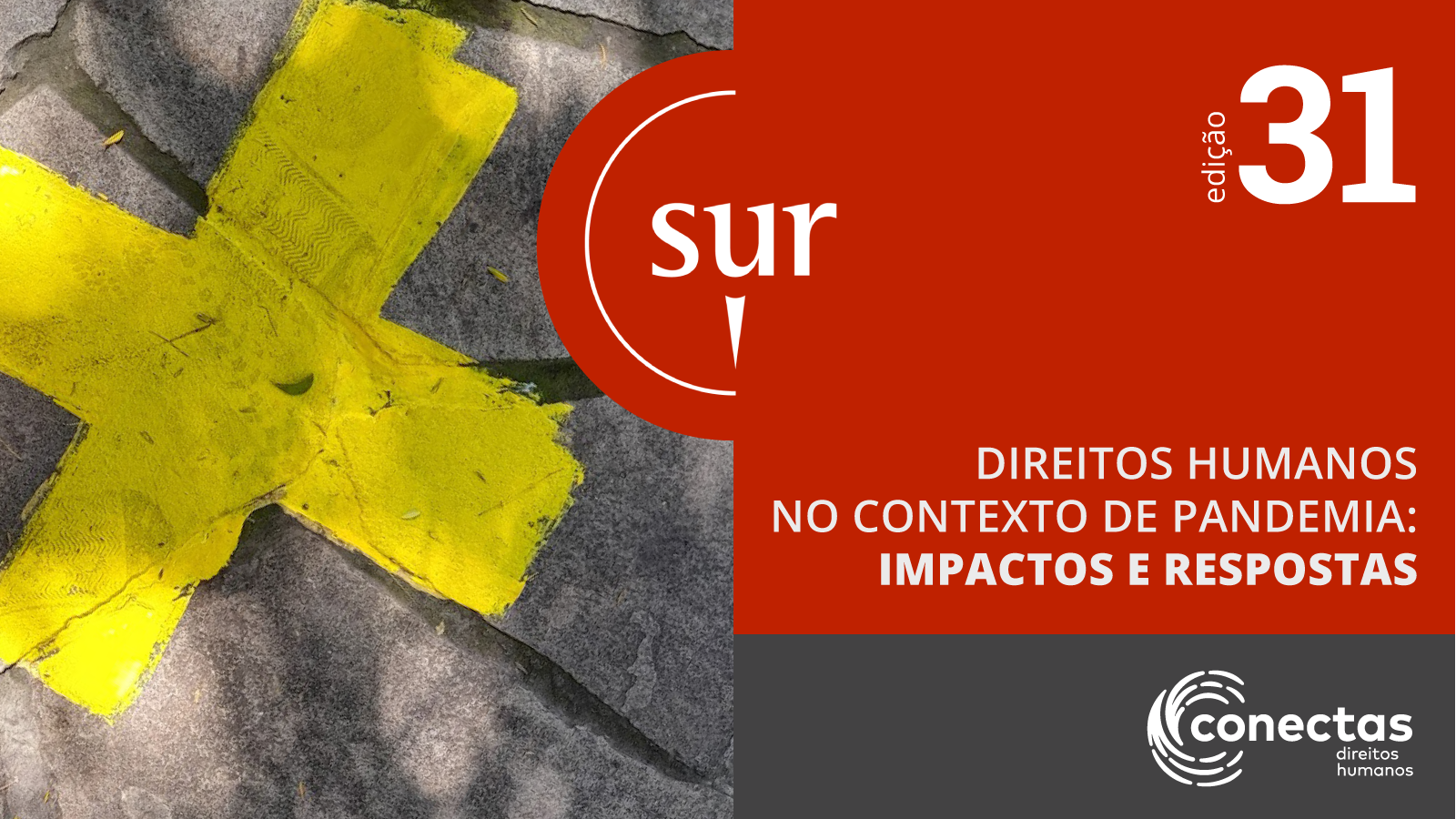News | AI with Rights | Digital Platforms and Markets
Conectas and Data Privacy Brazil launch the 31st edition of Revista Sur

by Willian Oliveira
With the theme “Human Rights in the Context of a Pandemic”, the 31st edition of Revista Sur was published last Friday (31st). Launched by Conectas, the publication was edited and co-signed in partnership with the Associação Data Privacy Brazil Research. This edition aimed to understand and reflect, through different social realities, on the impacts of COVID-19 in the Global South, as explained in the letter to readers that opens the issue.
The edition analyzes the use and abuse of surveillance technologies that threaten freedom, privacy, and other human rights, especially for social groups with limited access to constitutional guarantees, such as Indigenous people, Black people, women, and migrants. In this sense, divided into articles, essays, and interviews, Revista Sur presents itself as a mechanism in the fight for the protection of individual freedoms.
The publication, which includes authors from Peru, Chile, India, Colombia, Brazil, and South Africa, aims to share and expand the debate on this current scenario. Understanding the ongoing reality, the Associação Data Privacy Brasil de Pesquisa directly contributed to the “Vigilantism and Security” section, which addressed the issue of the rapid development of tracking technologies and specialized programs, unlimited access to data, and the centralization of information by governments and the private sector.
“It is extremely important that these voices from the Global South be read in many languages. Our problems are distinct from those in Europe and the U.S. This motivated our curatorial work on interviews and articles dealing with the intersection of new technologies and violations of fundamental rights”, explains Rafael Zanatta, Director of Data Privacy Brazil and invited editor.
Highlight of edition 31
Opening the segment, Usha Ramanathan, an Indian intellectual and activist, detailed in her interview for the 31st edition of Revista Sur the work done against the Unique Identification System in India. According to her, the method was merely a technique for control, surveillance, and exclusion of the poorest populations. Usha, seeking the true meaning of privacy and identity, questions the effectiveness of India’s General Data Protection Law.
Also in the realm of facial identification, Jamila Venturi and Michel Souza from the Chilean organization Derechos Digitales explain, in an interview, the risks posed by facial recognition technologies in contexts such as Latin America, which has a history of social inequality, rights violations, and criminalization of social movements. Revista Sur’s dialogue with activists also provides details about local and international legislation, economic and political relations between manufacturers, providers, and buyers, and the application of these technologies in Latin American countries.
Debating the issue of the mass use of control technologies during the pandemic, Peruvian intellectual and activist Carlos Guerreiro, in an article published in the edition, analyzes the impact of the use of eProctoring. The program in question combines facial recognition, biometrics, and artificial intelligence to conduct remote online assessments of students in virtual education. In his text, the primary concern is the threat to privacy rights and data protection of students, particularly in Latin America, where there is little applicable regulation for these programs.
Concluding the section, Brazilian intellectual Mariah Rafaela Silva presents an article on the intersection of control systems and surveillance with issues of race and gender in Brazil. Mariah aims to reflect on the use of these technologies and how they have become politicized through racial and gender prejudice stemming from a historical process called cis-coloniality.
In addition to the segment on vigilantism and security, the 31st edition of Revista Sur includes various contributions that describe the pandemic experience from the perspective of Indigenous people, Black people, and migrants. The publication also highlights the resilience of social movements and the emergence of various forms of collective organization aimed at mitigating the effects of COVID-19 in their communities. The global vaccine distribution and the environmental and climate issues are also presented and debated in the edition.
The 31st edition of Revista Sur and all the details of its development can be accessed online and for free in Portuguese, Spanish, and English. Access the full edition of the magazine.
DataPrivacyBr Research | Content under licensing CC BY-SA 4.0
